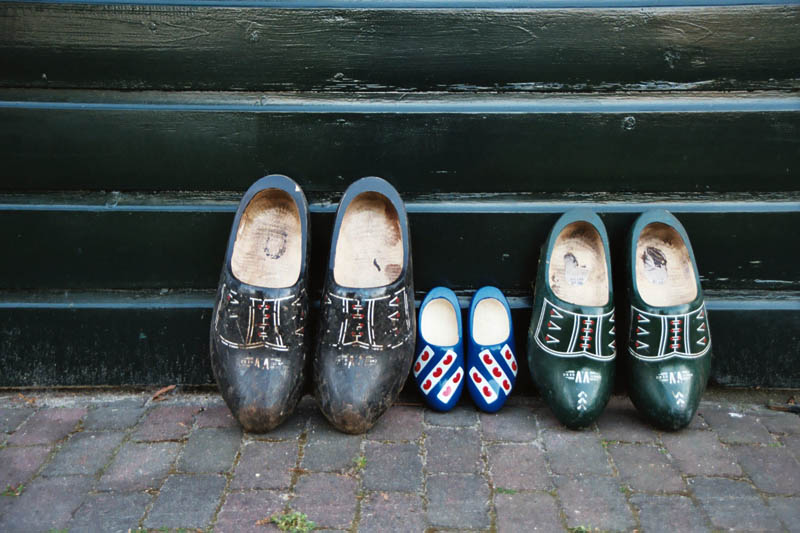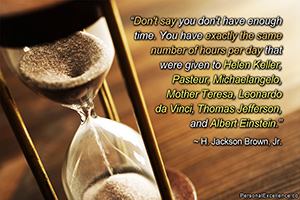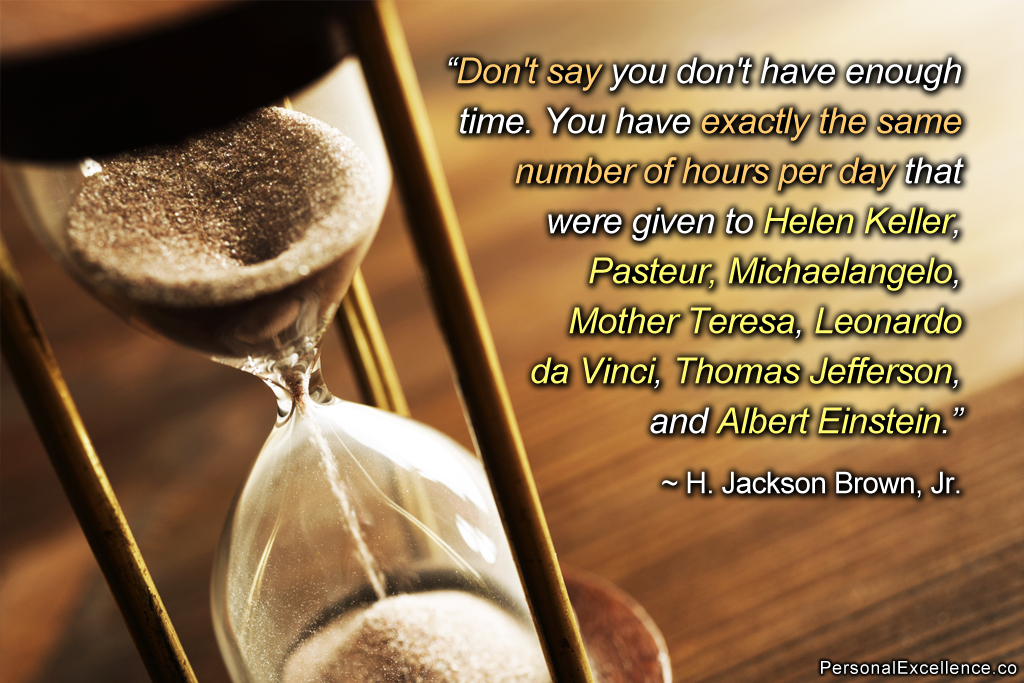This is part 2 of a 4-part series on how to improve your relationship with your parents. If you are new to this series, read Part 1: A Child’s Wish first.

Resignation
For a long time, I resigned that I would never have the kind of parent-child relationship I was looking for — at least not in this lifetime. Perhaps I would get it with my future parents-in-law (whoever they may be and if I ever get married), but not with my parents. I resigned that this was a wish that would only be fulfilled in another life, in another time.
I tried to rationalize it, telling myself that the kind of family bonds I see on TV was unreal. That they were idealized and not representative of real life. I also told myself that maybe they were more typical in Western culture and not a norm in Asian families.
But these rationalizations would prove to be self-denial, especially when I looked outward at my friends’ relationships with their parents.
For example, my friends would talk normally with their parents. They were able to discuss upcoming life decisions together. They might not hug their parents and say “I love you,” but they were able to communicate with one another, compared to the dysfunctional way my parents and I communicated with each other.
My friends would have family lunches/dinners. There would be times when they could not hang out because they had to be home to eat with their parents (and siblings).
My friends had no problems engaging in conversations with their parents, be it over the phone or in person. The conversations would be calm, civilized, and amicable, where no one would snap, shout or yell in anger; neither would anyone be rolling their eyes at anyone else.
Some of my friends would go on vacations with their parents, from weekend getaways in neighboring countries to week-long trips elsewhere. They would take photos together as one happy family, with the happy moments etched forever on the photos.
And some would take a hiatus from social meetups sometimes because they wanted to spend more time with their parents who had been away from home recently.
An Incident
The one time when reality hit me the hardest was when I was in junior college.
It was during Meet-the-Parents Day, an annual school event where all the students had to bring their parents to meet the teachers and the teachers would share a progress update of how each student was doing to their parent.
That day, my dad was with me in school to see my form teacher. After my teacher was done speaking to us, my dad and I made our way out of the campus — in silence, as was normally the case when we were with each other.
At this point, I saw a fellow schoolmate chatting away happily with her father. Both of them were walking around the campus, hand in hand. As they were doing that, my schoolmate affectionately hooked her arm through her dad’s arm and leaned onto his shoulder, in a daughter-father way.

I only caught this for a few seconds from afar, but it carved a deep impression in my heart. When I saw this, I was taken aback. Suddenly, the realization that it is indeed possible to have a close relationship with one’s parents hit me, hard — especially with it happening right before me.
To jab salt into the wound, there my dad was, standing beside me. Both of us looked like two strangers standing in the same space, whereas my schoolmate and her dad were right in front of us — the exemplification of the closest, most affectionate father-daughter relationship one could hope for.
The contrast was jarring. While I had thought all along that having the parent-child relationship of my dreams was impossible, there it was in reality, unfolding before me.
I felt a wave of envy, followed by a sinking pit of sadness. For a moment, I wished I was my schoolmate and I had the relationship she had with her father. I wished things were different and I had different parents. I wished I was in a different life. I wished I could start my life from scratch and restart my relationship with my parents. I wished I wasn’t me.
Hope and a Vigilant Effort
After realizing that my ideal parent-child relationship did in fact exist in reality, and that it was perhaps possible to create my desired relationship with my parents, I tried different things to improve our relationship.
I tried to be more patient with my parents.
I tried to spend more time with them.
I wrote a card, to my mom and dad each, to tell them how much I loved them and how much I appreciate what they had done for me all my life.
I tried, at one point, to hug them.
I tried to initiate conversations with them, to ask them how they were doing, to know more about them, and to understand them better.
I tried to arrange family meals — be it lunch or dinner.
I tried to organize vacations, where all of us could get away as a family.
I constantly put in effort to nudge our relationship in a positive direction.
But each time, my actions would be met with resistance. For example, when I tried to hug my mom, she was taken aback, asked me what the heck I was doing, and violently pushed me away, much to my shock.
When I tried to initiate conversations with them, they would be met with lackluster responses. With simple questions like “How’s your day?” or “What are you doing now?”, my dad would respond with monosyllabic replies that didn’t allow the conversation to continue. It was not because he was trying to be difficult, but because that is just the way he is — he’s not a talker. My mom would reply defensively, saying that I was getting in her way or wasting her time (something she has said all her life), and the conversation would come to an abrupt end.
The times I tried to arrange family meals, be it lunch or dinner on weekdays or weekends, or even for special occasions like Father’s Day or Mother’s Day, my mom would dismiss it as a pointless idea.
And whenever I suggested going on family vacations, my parents would vehemently reject the idea. They saw it as a waste of money, even if I offered to pay for everything. It wasn’t about “forcing” or “making” the idea happen either — they just genuinely had no interest in traveling abroad at all.
Emptiness… A Gap That Couldn’t Be Bridged

For a while, I couldn’t fathom how it was possible to have spent your whole life (literally) with someone, go through every stage in life together (at least physically), yet experience such immense difficulty communicating with them.
For it seemed like we had a gap between us that was unbridgeable.
For one, there is a language gap between us. My parents are fluent in Chinese and Hokkien (a Chinese dialect). Their preferred language of communication is Hokkien, followed by Chinese. But for me, I’m most comfortable with English. I can understand Hokkien but I can’t speak it well. I can speak Chinese perfectly fine, but often times I switch back to English because it’s easier to express myself that way.
This presents a fundamental barrier between us. Often times I would skip talking to them altogether because I don’t know how to express my answers completely in Chinese. For example, till today my parents don’t know what exactly I studied at university because I don’t know how to describe my course to them in Chinese. They don’t know what I did in my previous job at P&G, because I don’t know how to describe brand management to them in Chinese. And neither do they know what I’m doing in my business today because the concept of what I’m doing is lost when I try to describe it in Chinese. And believe me, I’ve tried to explain it before.
There is also a generation gap between us. My parents are computer illiterate. They have no idea about the world of the internet, blogging, social media, technology, computers, etc. But for me, the internet and computers are integral parts of my life. My work is built on them; my life revolves around them. Without the internet, my life would be completely different. To try to describe what I do daily to them — it’s like talking to someone from another planet. The notion is lost on them.
There also exists a gap in our worldviews. A truly meaningful life to me is one where we are our highest selves; we pursue what we want to do; we achieve our goals and dreams; and we self-realize. Personal growth is why I live and what I live for. But for my parents, their notions of what makes a fulfilling life are totally different. Routines are what they want to live in. They see no point in moving out of their current zones. Goals and dreams are not in their day-to-day vocabulary. Personal growth means little to them.
Even though they’ve been in my life since I was born, and I’ve been in theirs for the past 26 years of my life, it felt like we couldn’t be more distant than any two people in the world. Even though we’ve been living under the same roof for the past 26 years, it did nothing to draw us closer together as a family.
This gap showed no signs of closing too. As I embark on my growth and pursue my goals daily, I grow and become more different than I was the day before. My world keeps evolving into something more different than what my parents know.
It would seem that our parent-child relationship would never be the kind that I envisioned as a child. It was a missing void in me that would never be filled — until I came to a revelation 1.5 months ago.
Continue on to Part 3, where I share how I found peace in my relationship with my parents: Revelations and Happiness.
Quick note: Thanks everyone for your comments on the series! While I appreciate the words of advice or concern, this situation has been resolved (else I wouldn’t be writing about it here publicly — I write about resolved issues so that I can share the solutions on PE).
I’ve found peace in my relationship with my parents today, and my intention of writing the series is to share how I achieved this so that readers undergoing the same situation can achieve it too — not to get sympathy or pity, not to serve as recreational reading material, and certainly not to elicit shock. More in Part 3 of the series.
I’d also appreciate it if readers can read the story from an understanding and non-judging perspective. It felt as if some readers had read selective paragraphs of the story and started making judgments on my past and character, which was somewhat uncalled for.
I’m a human and I try to share as much of my life as possible on PE if it helps all of us to grow — I certainly don’t appreciate it when what I share here becomes fodder for negative critique and armchair analysis. Such mean-spirited thoughts are not welcome here. Thank you!
This is part 2 of a 4-part series on how to improve your relationship with your parents.
- Part 1: How I Found Peace in My Relationship with My Parents, Part 1: A Child’s Wish
- Part 2: How I Found Peace in My Relationship with My Parents, Part 2: A Pervasive, Widening Gap
- Part 3: How I Found Peace in My Relationship with My Parents, Part 3: Revelations and Happiness
- Part 4: How To Improve Your Relationship With Your Parents: A Delicate Guide
(Images: Family holding hands, Happy family, Clogs)









 Thanks for reading. If you like my free articles, join my private email list and get my latest updates and articles sent right to your inbox.
Thanks for reading. If you like my free articles, join my private email list and get my latest updates and articles sent right to your inbox.